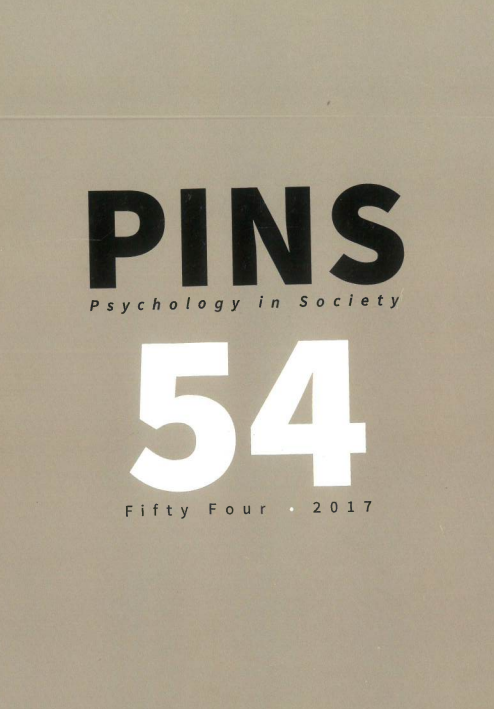African (situated) psychologies of boys, men and masculinities
DOI:
https://doi.org/10.17159/2309-8708/2017/n54a2Keywords:
Africa, Africa psychology, boys, masculinity, menAbstract
How might psychology less alienatingly study African men and boys? What potential contribution, in other words, might a situated psychology make towards understanding men and boys? Urged by these questions, and grounded in the view that there is still relatively little concerning Africa for itself, as well as much that is dehumanising of Africans within (North American and western European-centred) psychology this article seeks to present what I refer to as (African) situated psychologies, and more specifically (African) situated psychologies of boys, men and masculinities. Whilst the article is generally meant to contribute to the development of African psychology, because of an abiding interest in boys, men and masculinities, the article is also specifically intended to show how we might go about centring Africa in psychological studies of boys, men and masculinities. The basic argument is that attachment to (North American- or Western European-centred) psychology and Africa is inherently estranging, and what may be necessary is to critically trouble globally hegemonic traditions into which psychology students, teachers, therapists, and researchers located in Africa and with an interest in boys and men are hailed. Four different orientations in studies of psychology of masculinities are outlined, namely, a psychology of African boys, men and masculinities; psychological African studies of boys, men and masculinities; a more cultural African psychology of boys, men ad masculinities; and a more critical African psychology of boys, men and masculinities.
Downloads
Downloads
Published
How to Cite
Issue
Section
License
This journal is an open access journal, and the authors' and journal should be properly acknowledged, when works are cited.
Authors may use the publishers version for teaching purposes, in books, theses, dissertations, conferences and conference papers.
A copy of the authors’ publishers version may also be hosted on the following websites:
- Non-commercial personal homepage or blog.
- Institutional webpage.
- Authors Institutional Repository.
The following notice should accompany such a posting on the website: “This is an electronic version of an article published in PINS, Volume XXX, number XXX, pages XXX–XXX”, DOI. Authors should also supply a hyperlink to the original paper or indicate where the original paper (http://www.journals.ac.za/index.php/pins) may be found.
Authors publishers version, affiliated with the Stellenbosch University will be automatically deposited in the University’s’ Institutional Repository SUNScholar.
Articles as a whole, may not be re-published with another journal.
The copyright of the article(s) lies with the author(s).
The copyright of the journal lies with PINS-psychology in Society.
The following license applies:
Attribution CC BY-NC-ND 4.0 - https://creativecommons.org/licenses/by-nc-nd/4.0/

